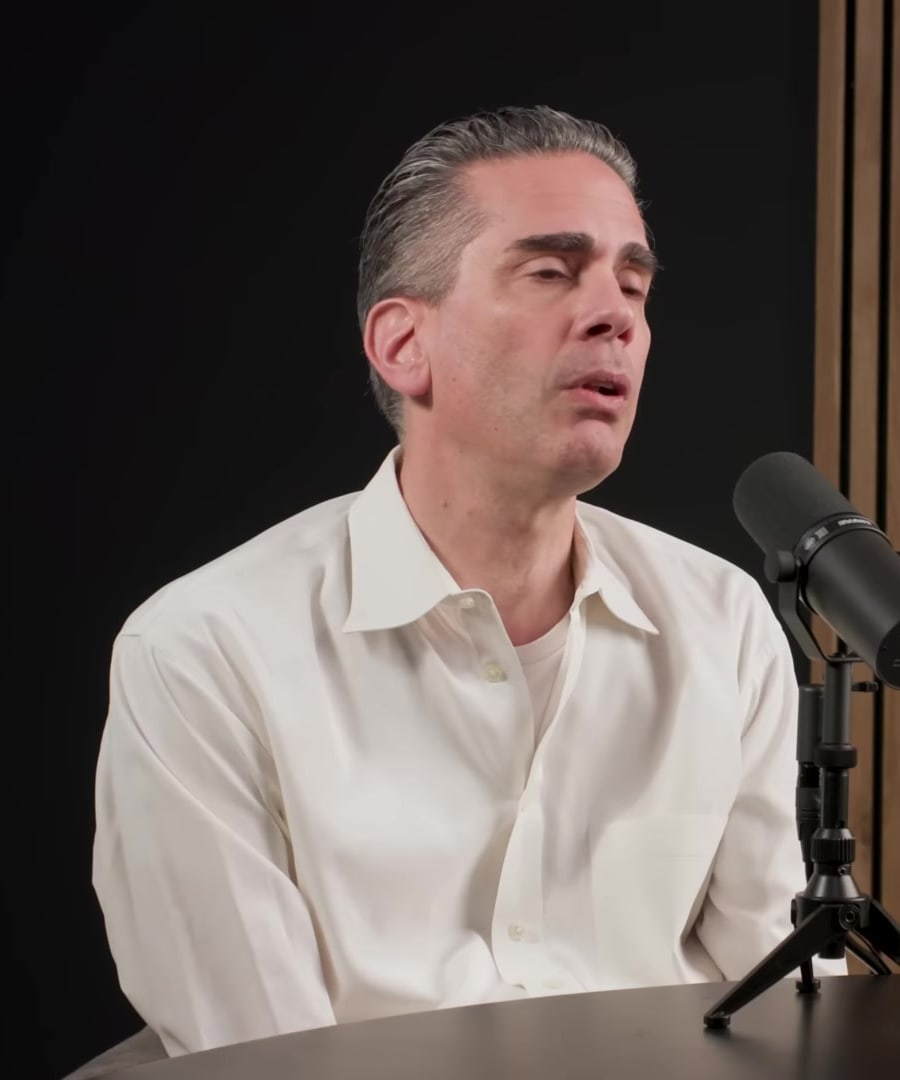how to lose weight after menopause
Sources:
Losing weight after menopause can be particularly challenging due to hormonal changes that affect metabolism and body composition. Here's a summary of strategies to consider, based on insights from and other experts on the :
-
Nutrition:
- Prioritize Protein: Ensure adequate protein intake to help maintain muscle mass, which can decrease with age. Women often require 80-120 grams per day, depending on their body composition 1.
- Minimize Processed Foods: Focus on whole, minimally processed foods to support metabolic health and overall well-being 2.
- Higher Fiber Intake: Include a variety of fibrous foods, which can help with digestive health and satiety 1.
-
Exercise:
- Regular Physical Activity: Engage in both aerobic exercises (like walking) and resistance training to maintain muscle mass and improve metabolic rate. Exercise also improves appetite regulation and sensitivity to satiety signals 3.
- High-Intensity Interval Training (HIIT): This can be particularly effective in boosting metabolism and fat loss 3.
-
Hormone Considerations:
- Hormone Therapy: Discuss with your healthcare provider the risks and benefits of hormone replacement therapy (HRT) to address symptoms like hot flashes and night sweats, which are biomarkers of underlying health issues like cardiometabolic disease 4.
- Monitor Estrogen Levels: The decline in estrogen during menopause is linked to metabolic changes. Maintaining balanced hormone levels can help mitigate some of these effects 5.
-
Body Composition Focus:
- Understand that menopause often results in increased visceral fat and decreased muscle mass. Strategies should focus on reversing these changes through diet and exercise 1.
-
Sustainable Lifestyle Changes:
- Long-Term Commitment: Focus on creating sustainable habits rather than short-term diets. Choose a form of dietary restriction (like intermittent fasting or low-carb diets) that feels the least restrictive for you and can be maintained long-term 6.
- Behavioral Adjustments: Recognize the importance of adapting lifelong habits, rather than temporary fixes 6.
These strategies provide a comprehensive approach to managing weight after menopause, focusing on nutrition, exercise, hormone balance, and sustainable lifestyle changes. Always consult with healthcare professionals before making significant changes to your diet or exercise routines.
RELATED QUESTIONS-
how to stop someone from using cocaine
Sources:
Helping someone stop using cocaine involves addressing both the psychological and physiological aspects of addiction. Here are strategies and insights based on the discussions from :
-
Understanding Dopamine and Addiction: Cocaine creates a very rapid and high peak in dopamine, which the brain learns to crave. This hyper-short contingency makes it difficult for individuals to pursue activities that provide a slower dopamine release, leading to addiction 1.
-
Developing a New Identity: One crucial strategy is helping the individual develop a new identity. This involves changing their environment, friend groups, and habits. Similar to how people recover from other addictions, individuals may need to reshape their entire lifestyle to avoid triggers and build new, healthier associations 2.
-
Behavioral Therapy and Support:
- Cognitive Behavioral Therapy (CBT): This can be highly effective in helping individuals change their thought patterns and behaviors associated with drug use.
- Social Support: Encouraging social withdrawal from environments and friends that facilitate drug use is essential. Surround the individual with supportive friends and family, and create a healthy environment 3.
- Professional Help: Engaging with a professional therapist or counselor who specializes in addiction can provide the structured support needed.
-
Gradual Reduction and Substitution: While not directly mentioned for cocaine, some strategies from other addiction treatments like nicotine include gradual reduction and substitution with safer products or activities that stimulate dopamine in a healthier way 4.
-
Medical Supervision: Consult with healthcare providers for any available medications or medical interventions that can aid in reducing cravings and withdrawal symptoms.
Combining these approaches under professional guidance and with strong social support increases the chances of successfully helping someone stop using cocaine.
RELATED QUESTIONS-
how to deal with someone who has anger issues
Sources:
Dealing with someone who has anger issues involves several key strategies and understanding different psychological aspects. Here are some insights and approaches discussed on the :
-
Creating a Safe Space for Communication:
- Encourage open communication and provide a safe environment for the person to express their feelings. Validating their emotions can help them feel understood. For instance, acknowledging their anger with statements like, "I believe you" or "I can see you're very upset" can be powerful in diffusing the situation and starting a constructive dialogue 1 2.
-
Emotional Detachment and Understanding:
- Practice emotional detachment to avoid escalating the situation. If the person with anger issues starts to get frustrated, taking a mental step back and understanding their frustration rather than reacting emotionally can calm things down. A response like, "I can see why you're upset, let's talk about it," can be helpful 3.
-
Mindfulness:
- Encouraging mindfulness practices can be beneficial. Mindfulness helps individuals observe their anger as a transient state and not get caught up in it. This practice allows them to decide how long they want to stay angry and can help them let go of their anger more quickly 4.
-
Addressing Projection and Displacement:
- Recognize and address projection and displacement, common defense mechanisms where a person might misattribute their frustration or anger to others. For example, understanding that their outburst might be more about their own issues rather than something you did can bring clarity to the situation and reduce misunderstandings 5.
-
Repairing Relationships:
- Effective repair involves acknowledging mistakes and separating one's identity from their behavior. For example, if the person with anger issues regrets their outburst, they should understand and accept their mistake without self-blame. This self-repair helps in genuine apologies and rebuilding trust 6.
-
Setting Boundaries:
- It's crucial to set clear boundaries while remaining supportive. If someone is repeatedly aggressive or disrespectful, letting them know that this behavior is unacceptable and discussing it when both parties are calmer can enforce healthy limits 2.
By implementing these strategies, you can help someone with anger issues manage their emotions more effectively and foster healthier communication and relationships.
RELATED QUESTIONS-
how to lose weight after menopause
- RELATED QUESTIONS
how to stop someone from using cocaine
- RELATED QUESTIONS
how to deal with someone who has anger issues
- RELATED QUESTIONS















